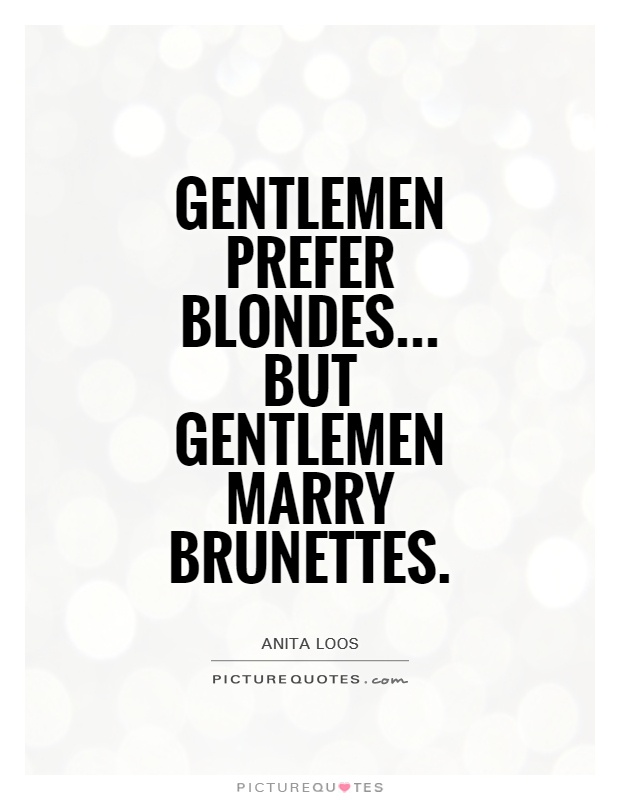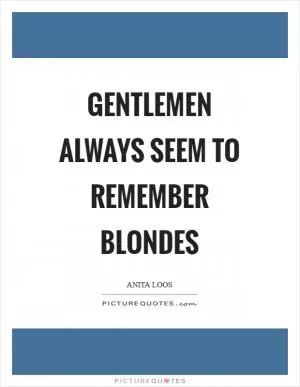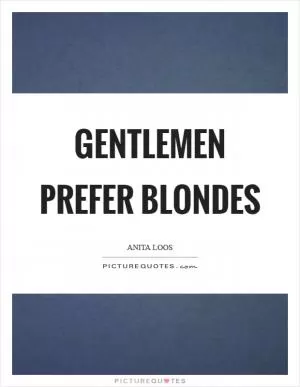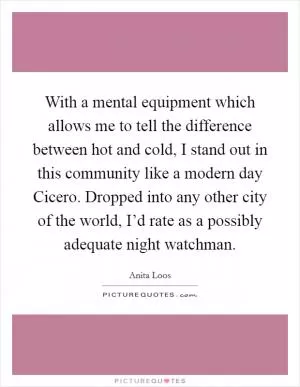Gentlemen prefer blondes... But gentlemen marry brunettes

Gentlemen prefer blondes... But gentlemen marry brunettes
Anita Loos, the renowned American author and screenwriter, is perhaps best known for her iconic novel "Gentlemen Prefer Blondes." Published in 1925, the book follows the escapades of Lorelei Lee, a beautiful and naive blonde who captivates men with her looks and charm. The novel satirizes the societal obsession with blonde women and the stereotypes associated with them.The famous phrase "Gentlemen prefer blondes... But gentlemen marry brunettes" encapsulates the central theme of Loos' novel. In the story, Lorelei Lee is adored by men for her blonde hair and perceived innocence, but ultimately it is her brunette friend Dorothy who finds lasting love and marriage. This dichotomy between the allure of blondes and the stability of brunettes is a recurring motif in Loos' work, highlighting the superficiality of societal expectations and the complexities of romantic relationships.
Loos uses humor and wit to critique the double standards faced by women based on their appearance. Lorelei Lee, despite her intelligence and wit, is often dismissed as a "dumb blonde" by those around her. Meanwhile, Dorothy is portrayed as the more practical and grounded of the two, ultimately finding a fulfilling relationship based on mutual respect and understanding.
The phrase "Gentlemen prefer blondes... But gentlemen marry brunettes" also speaks to the idea of perception versus reality. While Lorelei may be seen as the ideal woman by society's standards, it is Dorothy who proves to be the more desirable partner in the long run. This subversion of expectations challenges the notion that beauty is the most important factor in a successful relationship, highlighting the importance of character and compatibility.
Overall, Anita Loos' exploration of the blonde versus brunette dichotomy in "Gentlemen Prefer Blondes" is a sharp and insightful commentary on gender roles, societal expectations, and the complexities of love and relationships. Through her iconic characters Lorelei and Dorothy, Loos challenges stereotypes and offers a nuanced portrayal of female agency and empowerment.












 Friendship Quotes
Friendship Quotes Love Quotes
Love Quotes Life Quotes
Life Quotes Funny Quotes
Funny Quotes Motivational Quotes
Motivational Quotes Inspirational Quotes
Inspirational Quotes